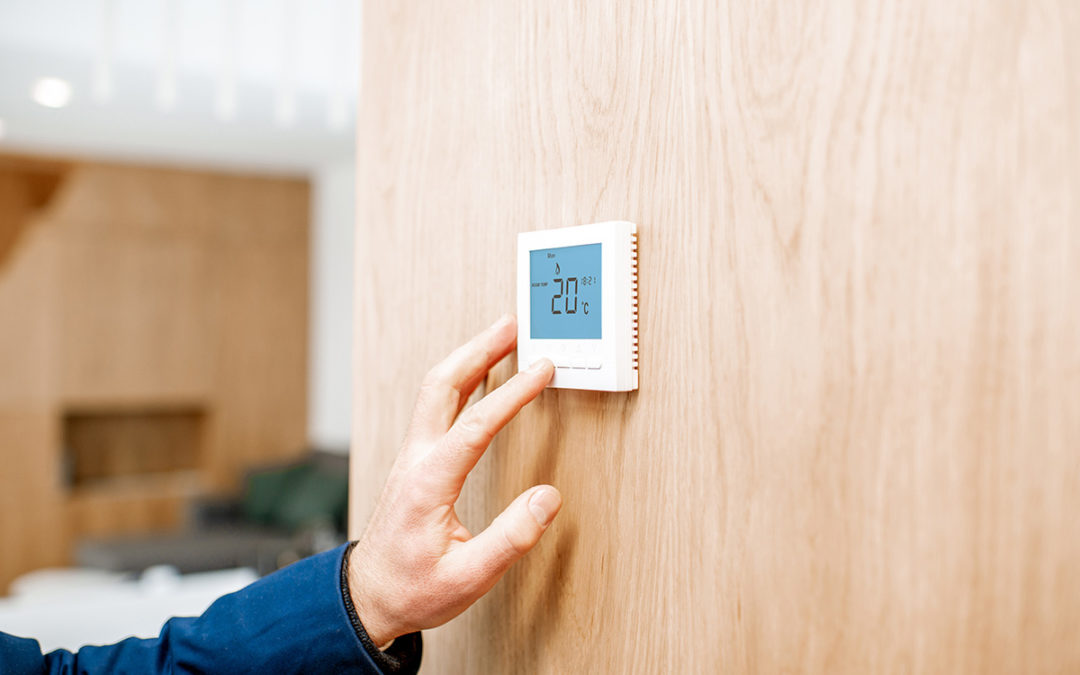Smart Home Technology has Changed the Way We Manage Our Living Spaces
One of the most significant advancements in this field is the smart thermostat, which offers numerous benefits for homeowners seeking greater comfort, convenience, and energy efficiency. If you’re still using a traditional thermostat, here are several compelling reasons why upgrading to a smart thermostat could be a smart move for you and your home.
- Energy Savings: One of the primary advantages of smart thermostats is their ability to optimize energy usage and reduce utility bills. Unlike traditional thermostats, which rely on manual adjustments, smart thermostats use advanced algorithms and sensors to learn your heating and cooling preferences and adjust settings accordingly. By automatically adjusting the temperature based on factors such as occupancy, weather conditions, and time of day, smart thermostats can help you save energy and lower your heating and cooling costs.
- Remote Access and Control: Smart thermostats enable you to control your home’s heating and cooling system remotely from your smartphone, tablet, or computer. Whether you’re at work, on vacation, or simply relaxing on the couch, you can easily adjust the temperature settings, monitor energy usage, and receive real-time alerts and notifications. This remote access feature provides added convenience and flexibility, allowing you to maintain optimal comfort and efficiency wherever you are.
- Customizable Scheduling: With a smart thermostat, you can create customized heating and cooling schedules tailored to your daily routine and lifestyle. Whether you prefer different temperature settings during the day, evening, or night, or want to adjust the temperature based on occupancy patterns, you can easily program your smart thermostat to meet your specific needs. This flexibility allows you to maximize comfort while minimizing energy waste, ultimately saving you time and money.
- Integration with Smart Home Ecosystems: Smart thermostats seamlessly integrate with other smart home devices and ecosystems, such as voice assistants, home automation platforms, and energy management systems. This integration allows you to control your thermostat using voice commands, automate temperature adjustments based on triggers like motion sensors or door sensors, and coordinate heating and cooling with other connected devices for enhanced comfort and efficiency.
- Learning and Adaptive Features: Many smart thermostats feature learning algorithms that adapt to your behavior and preferences over time. By monitoring your temperature adjustments, occupancy patterns, and external factors, such as weather forecasts, smart thermostats can learn your habits and automatically adjust settings to maximize comfort and efficiency. This learning capability eliminates the need for manual programming and ensures that your home remains comfortable while minimizing energy consumption.
- Energy Usage Insights and Reporting: Smart thermostats provide valuable insights into your home’s energy usage and heating and cooling patterns. By tracking energy consumption, runtime data, and temperature trends, you can gain a better understanding of how your HVAC system operates and identify opportunities for further energy savings. Many smart thermostats also offer detailed energy reports and analytics, allowing you to track your progress and make informed decisions about energy efficiency improvements.
- Environmental Benefits: In addition to the financial savings and convenience benefits, upgrading to a smart thermostat can also have positive environmental impacts. By reducing energy consumption and greenhouse gas emissions associated with heating and cooling, smart thermostats help mitigate climate change and contribute to a more sustainable future. By investing in energy-efficient technologies like smart thermostats, homeowners can play a role in protecting the environment while enjoying the benefits of a comfortable and efficient home.
In conclusion, upgrading to a smart thermostat offers numerous benefits for homeowners, including energy savings, remote access and control, customizable scheduling, integration with smart home ecosystems, learning and adaptive features, energy usage insights, and environmental benefits. By harnessing the power of smart technology, you can enhance comfort, convenience, and efficiency in your home while reducing your environmental footprint and saving money on utility bills. If you haven’t already made the switch to a smart thermostat, now is the perfect time to upgrade and experience the many advantages it has to offer.



Recent Comments